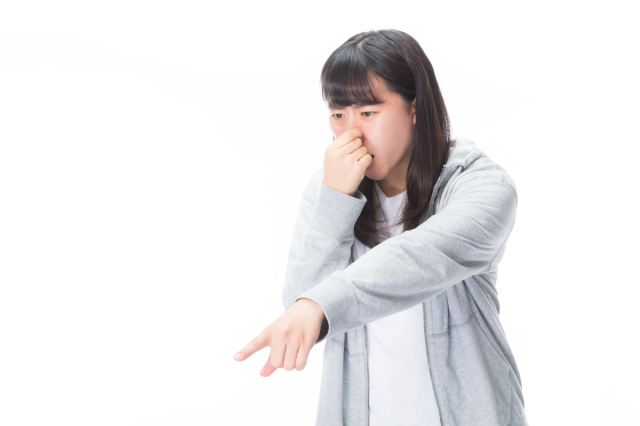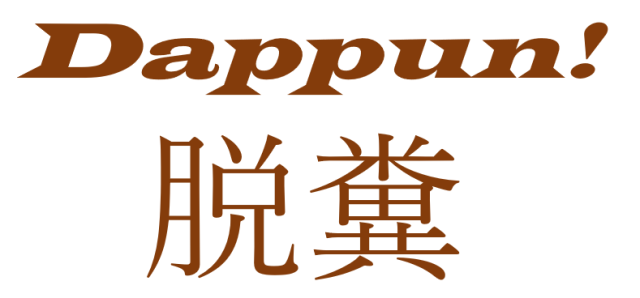
Seriously, no shit.
Going by crime standards for large cities in most other countries, the whole of Tokyo is exceedingly safe. However, if you ask native Tokyoites, more than a few will argue that Adachi Ward is kind of a seedy part of town.
Located on the other side of the Arakawa River from the gleaming city center, Adachi has long had a reputation as a place where blue-collar workers and bored youths like to get drunk and or/into mischief. So when Japanese Twitter user @curetencho walked into a Lawson convenience store in Adachi, he noticed a sign above the self-service oden (stewed vegetables and meats) station that he wouldn’t have expected in any other part of Tokyo.
足立区ともなるとコンビニの注意書きもハイレベルですよ pic.twitter.com/GKWUXmA4IQ
— 店長@(「・ω・)「 (@curetencho) August 28, 2018
The sign reads “Please do not grab the oden with your bare hands. It is cooked at a high temperature, and you might get burned.” Customers are instead supposed to use the tongs and serving spoons located to the right of the tray, but this is considered common sense. “When you’re in Adachi, even the warning signs at the convenience stores are on a higher level,” mused @curetencho, perhaps remembering an incident from a couple years back where a gross prankster had filmed himself repeatedly stabbing his fingers into a convenience store oden pot.
But what @curetencho wasn’t aware of was that there’s apparently a level of Adachi warning sign beyond even this, as another Twitter user, @Kill_joys, simply responded with this photo.
— ウメサキ=サン (@kill_joys6) August 29, 2018
If you’ve spent much time in a Japanese class, or in Japan, you might recognize the big red kanji characters 禁止, pronouncd kinshi and meaning “prohibited.” But even if you aced all your college kanji tests, you might not be familiar with the compound 脱糞, so let’s take a look at it.
脱 shows up pretty commonly as part of the verb nugu, meaning to remove or take off. 糞, though, is something you’re more likely to hear spoken in anger than written in formal signage, because it’s the kanji for kuso, meaning “excrement” or “shit.”
When written together they’re pronounced dappun, the Japanese word for “defecation.”
▼ Knowing its meaning, the sound of the word seems quite evocative of the act it’s describing, but this actually isn’t a case of Japanese onomatopoeia.
So yes, apparently there were enough cases of public pooping along the strip of ground shown in @Kill_joys’ photo that the property owner felt the need to go out and purchase a professionally made sign to sternly proclaim “Pooping prohibited.”
There’s even a warning at the top of the sign, including an illustration, that the spot is being filmed by a security camera. Whether the intent is to dissuade deuce-droppers through shame or simply clenched muscles from being conscious that someone is looking is unknown, but either way, hopefully the warning is working.
Source: Twitter/@Kill_joys via Hachima Kiko
Top image: Pakutaso
Insert image: SoraNews24
Follow Casey on Twitter for more words they didn’t teach you in Japanese class.


 Japanese park’s English dog turd warning minces no words【Why does Engrish happen?】
Japanese park’s English dog turd warning minces no words【Why does Engrish happen?】 Japanese company puts up signs banning one specific style of intercourse, for coronavirus safety
Japanese company puts up signs banning one specific style of intercourse, for coronavirus safety Japan Extreme Budget Travel! A trip from Tokyo to Izumo for just 30,000 yen [Part 1]
Japan Extreme Budget Travel! A trip from Tokyo to Izumo for just 30,000 yen [Part 1] Japanese drugstore sells onigiri at pre-stupid era prices, but how do they compare to 7-Eleven?
Japanese drugstore sells onigiri at pre-stupid era prices, but how do they compare to 7-Eleven? Japan’s new “Cunte” contact lenses aren’t pronounced like you’re probably thinking they are
Japan’s new “Cunte” contact lenses aren’t pronounced like you’re probably thinking they are Skyscraper sized Pokémon cards to appear in Tokyo all year long in Tocho projection mapping event
Skyscraper sized Pokémon cards to appear in Tokyo all year long in Tocho projection mapping event Beautiful website catalogues some of Japan’s most ornate manhole covers
Beautiful website catalogues some of Japan’s most ornate manhole covers Fashion for the young at heart! A different take on what it means to get older in Japan
Fashion for the young at heart! A different take on what it means to get older in Japan 7-Eleven Japan’s sakura sweets season is underway right now!
7-Eleven Japan’s sakura sweets season is underway right now! Starbucks Japan releases first-ever Hinamatsuri Girls’ Day Frappuccino
Starbucks Japan releases first-ever Hinamatsuri Girls’ Day Frappuccino Satisfy your sweet tooth with cheesecake and more all-you-can-eat sweets at Cheese Garden
Satisfy your sweet tooth with cheesecake and more all-you-can-eat sweets at Cheese Garden 10 beautiful packaging designs from Japan
10 beautiful packaging designs from Japan The 10 most annoying things foreign tourists do on Japanese trains, according to locals
The 10 most annoying things foreign tourists do on Japanese trains, according to locals Starbucks Japan releases new sakura goods and drinkware for cherry blossom season 2026
Starbucks Japan releases new sakura goods and drinkware for cherry blossom season 2026 Is Sapporio’s Snow Festival awesome enough to be worth visiting even if you hate the snow? [Pics]
Is Sapporio’s Snow Festival awesome enough to be worth visiting even if you hate the snow? [Pics] Japan has trams that say “sorry” while they ride around town…but why?
Japan has trams that say “sorry” while they ride around town…but why? Tokyo Skytree turns pink for the cherry blossom season
Tokyo Skytree turns pink for the cherry blossom season Highest Starbucks in Japan set to open this spring in the Tokyo sky
Highest Starbucks in Japan set to open this spring in the Tokyo sky Shibuya Station’s Hachiko Gate and Yamanote Line stairway locations change next month
Shibuya Station’s Hachiko Gate and Yamanote Line stairway locations change next month Yakuzen ramen restaurant in Tokyo is very different to a yakuza ramen restaurant
Yakuzen ramen restaurant in Tokyo is very different to a yakuza ramen restaurant Starbucks Japan adds new sakura Frappuccino and cherry blossom drinks to the menu
Starbucks Japan adds new sakura Frappuccino and cherry blossom drinks to the menu Japan’s newest Shinkansen has no seats…or passengers [Video]
Japan’s newest Shinkansen has no seats…or passengers [Video] Foreigners accounting for over 80 percent of off-course skiers needing rescue in Japan’s Hokkaido
Foreigners accounting for over 80 percent of off-course skiers needing rescue in Japan’s Hokkaido Super-salty pizza sends six kids to the hospital in Japan, linguistics blamed
Super-salty pizza sends six kids to the hospital in Japan, linguistics blamed Starbucks Japan unveils new sakura Frappuccino for cherry blossom season 2026
Starbucks Japan unveils new sakura Frappuccino for cherry blossom season 2026 Foreign tourists in Japan will get free Shinkansen tickets to promote regional tourism
Foreign tourists in Japan will get free Shinkansen tickets to promote regional tourism Take a trip to Japan’s Dododo Land, the most irritating place on Earth
Take a trip to Japan’s Dododo Land, the most irritating place on Earth Naruto and Converse team up for new line of shinobi sneakers[Photos]
Naruto and Converse team up for new line of shinobi sneakers[Photos] Is China’s don’t-go-to-Japan warning affecting the lines at a popular Tokyo gyukatsu restaurant?
Is China’s don’t-go-to-Japan warning affecting the lines at a popular Tokyo gyukatsu restaurant? Survey asks foreign tourists what bothered them in Japan, more than half gave same answer
Survey asks foreign tourists what bothered them in Japan, more than half gave same answer Japan’s human washing machines will go on sale to general public, demos to be held in Tokyo
Japan’s human washing machines will go on sale to general public, demos to be held in Tokyo Starbucks Japan releases new drinkware and goods for Valentine’s Day
Starbucks Japan releases new drinkware and goods for Valentine’s Day We deeply regret going into this tunnel on our walk in the mountains of Japan
We deeply regret going into this tunnel on our walk in the mountains of Japan Studio Ghibli releases Kodama forest spirits from Princess Mononoke to light up your home
Studio Ghibli releases Kodama forest spirits from Princess Mononoke to light up your home Major Japanese hotel chain says reservations via overseas booking sites may not be valid
Major Japanese hotel chain says reservations via overseas booking sites may not be valid Put sesame oil in your coffee? Japanese maker says it’s the best way to start your day【Taste test】
Put sesame oil in your coffee? Japanese maker says it’s the best way to start your day【Taste test】 No more using real katana for tourism activities, Japan’s National Police Agency says
No more using real katana for tourism activities, Japan’s National Police Agency says